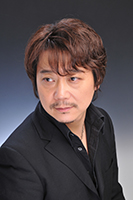No.sfa0052
2022/4/4
- Culture / Sports
Yoshimichi Hamada announced winner of the 53rd Suntory Music Award for 2021
Download PDF
 |
The Suntory Foundation for the Arts (Directors General: Tsuyoshi Tsutsumi and Shingo Torii) has announced Yoshimichi Hamada as the recipient of the 53rd (2021) Suntory Music Award, which is presented to individuals or ensembles for notable contributions to the development of Western-style music in Japan.
▽Selection process
The first round of selections to choose candidates was held on Monday, January 10, 2022 at the conference room of the foundation. The competition continued with final qualifying round on Thursday, February 25, 2022 by online. After careful consideration, Yoshimichi Hamada was chosen as the winner of the 53rd (2021) Suntory Music Award, a decision that received the formal agreement of the Board of Directors of the Foundation on Tuesday, March 31, 2022.
▽Prize-money ¥7,000,000
▽The members of the selection committee
Seiji Choki, Atsuya Funaki, Morihide Katayama, Akane Matsudaira, Yuji Numano, Akeo Okada, Miyuki Shiraishi (In alphabetical order)
▽Reason for the award
From the Middle Ages to the early Baroque period, European music continued to shift--between the sacred and the profane, the upper and lower ranks of society, and between countries and regions--while maintaining a constant relationship with the outside world through various moves. The music Yoshimichi Hamada creates is a reflection of those times. By exploring the origins of modern Japanese music in the music brought back by the Tensho Boys’ Embassy to Europe in the 16th century, and the roots of South American music transcribed by bishops assigned to Peru, he seeks to capture music’s dynamic metamorphosis and flow. This global perspective on European music is backed by a wealth of knowledge, but the flight from there to actual performance is taken with the utmost imagination. While bringing a thorough understanding of every network of influence, Hamada combines them with bold improvisation and seemingly unorthodox elements. This brings the music of the period to life with unexpected vividness.
Hamada, who is also an accomplished performer on the recorder and cornett, pursues that same vividness with a more direct appeal to the senses in his own performance of Jacob van Eyck’s Der Fluyten Lust-hof, a joyful yet superb display of technique. In his performances of Baroque opera in recent years, he has incorporated all of the information available from within and even beyond the score to once again place works in the context of the imagined environment original to the period in which they were created, breathing new life into them and giving them fresh excitement. Even from a global perspective, this bold performance style is groundbreaking. In Messiah, which was performed in 2021, Hamada used a minimal, elite ensemble and chorus to create a strikingly innovative sound based on deep insight into the score, presenting a striking performance that was notable both for its mobility and flexibility, and for its level of improvisation and unpredictability. Keeping with the performance customs of the time the piece was composed, Hamada struck at the very heart of the piece while showing a modern sense of freedom, creating an unheard-of Baroque world that breathes uninhibitedly in the world of today. This is why his work can be recognized as an achievement worthy of this award.
(Seiji Choki, Committee Member)
▽Biography
Yoshimichi HAMADA (Direction / Recorder / Cornett)
Yoshimichi Hamada was born into a family of musicians in Tokyo as a great-grandson of the founder of Japanese first private music college, the Toyo Music Academy (the forerunner of the Tokyo College of Music). He graduated from the Period-instrument course of the Toho Gakuen College Music Department; then he studied at the Schola Cantorum Basiliensis on a scholarship from the Swiss government. Hamada, as a virtuoso of recorder and cornett, joined many concerts and recordings in Japan and overseas countries. CDs released from overseas labels have all been awarded Five Stars by the“Diapason”of France.
In 2013, Hamada started the “Opera Fresca” project to perform early operas from the inception of operatic works to the Baroque era: Hamada directed three great works of C. Monteverdi (“L’Orfeo”, “Il ritorno d’Ulisse in patria”, and “L’incoronazione di Poppea”), G. Caccini’s “L’Euridice” (Japan premier), G.F.Handel’s “Giulio Cesare” as well as the Japan premier of “La favola d’Orfeo”, which is thought to have been originally produced by Leonardo da Vinci.
As his another lifework, Hamada studies “Nanban ongaku”, that is, music introduced by Portuguese and Spaniards during the Warring States period of Japan in the 16th century: to date he released a CD and created musical-drama performances under the subjects such as “Music of the Japanese Tensho Boys’ Embassy to Europe”, “Esopono Fabvlas” (Aesop’s fables), “Francisco de Xavier and Sorin Otomo”, etc.
Hamada is the author of “Devote yourself to the heart of singing” (Artes Publishing Inc.). He directs Early Music Ensemble “Anthonello”.
(Awards)
The 7th Hotel Okura Music Award in 2005
The 28th Music Pen Club Japan Award (chamber music/chorus) in 2015
The 14th Yoshio Sagawa Memorial Award for the 2015 Japanese fiscal year
The 6th JASRAC Music Culture Award in 2019
The 50th ENEOS Music Award (Western Classical Music Promotion Division) in 2020
The 17th Mitsubishi UFJ Trust Music Award Encouragement Prize in 2020
See here for more on the Suntory Music Award
See here about the Suntory Foundation for the Arts
